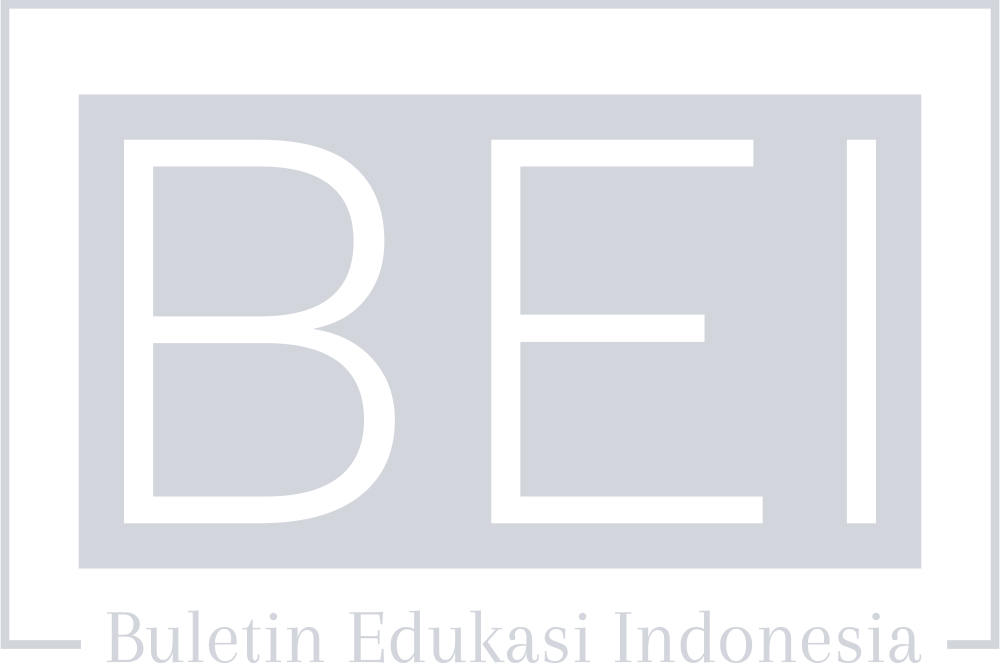Direct Influence of Socio-Economic Towards Education Quality: Growth of Standardization
DOI:
https://doi.org/10.56741/bei.v2i03.443
Keywords:
Economic Status, Education Quality, Employment, Inequality, Poverty, Socio-economics
Abstract
Socio-economic is derived from the term socio, which means "social" or "socialization," while economics is defined as how societies allocate limited resources to satisfy unlimited wants and needs. In essence, socio-economics bridges the gap between economics and sociology, acknowledging that economic outcomes are often intertwined with social factors and that both play a crucial role in shaping the dynamics of societies and the livelihood of their members. Socio-economic impacts on education underscore the need for proactive efforts to ensure that all students have equal access to education quality and opportunities regardless of their background. Addressing these disparities is essential for fostering a more inclusive and equitable educational system and promoting social and economic progress. Some parents choose their children not to go to school because of their income status; they decide to get employed instead of continuing their studies to sustain the necessities of their family. The significance of this article is to identify the main problems of society, which are poverty and unemployment due to lack of access to education quality. It has been found that socioeconomic factors have a significant impact and influence on our education. Hence, as people attain a higher level of education, the more they can get quality employment status in the future.
Downloads
References
Ewumi, A. M. (2012). Gender and socio-economic status as correlates of students’ academic achievement in senior secondary schools. European Scientific Journal, 8(4), 23-36.
Rodríguez-Hernández, C. F., Cascallar, E., & Kyndt, E. (2020). Socio-economic status and academic performance in higher education: A systematic review. Educational Research Review, 29, 100305. DOI: https://doi.org/10.1016/j.edurev.2019.100305
Olopade, B. C., Okodua, H., Oladosun, M., & Asaleye, A. J. (2019). Human capital and poverty reduction in OPEC member countries. Heliyon, 5(8), e02279. DOI: https://doi.org/10.1016/j.heliyon.2019.e02279
Avvisati, F. (2020). The measure of socio-economic status in PISA: A review and some suggested improvements. Large-Scale Assessments in Education, 8(1), 1-37. DOI: https://doi.org/10.1186/s40536-020-00086-x
Tekin Turhan, G., Tokal, P., & Sart, G. (2023). The Role of Financial Sector Development and Educational Attainment in the Achievement of Economic Sustainability: Evidence from BRICS Economies. Sustainability, 15(6), 5527. DOI: https://doi.org/10.3390/su15065527
Considine, G., & Zappalà, G. (2002, April). Factors influencing the educational performance of students from disadvantaged backgrounds. In Competing visions: Refereed proceedings of the national social policy conference (Vol. 2001, pp. 91-107).
Rios, W. V., Lumayno Jr, V. C., Barola, M. T. T., & Estorosos, J. S. (2013). The Impact of Education on the Socioeconomic and Political Development of a Nation. Recoletos Multidisciplinary Research Journal, 1(1), 11-17. DOI: https://doi.org/10.32871/rmrj1301.01.02
Schultz, T. W. (1961). Education and economic growth. Teachers College Record, 62(10), 46-88. DOI: https://doi.org/10.1177/016146816106201003
Sianturi, M., Lee, J. S., & Cumming, T. M. (2023). Shifting the belief of the “hard-to-reach parents” to “reachable parents”: Parent-teacher collaboration within schools in a post-colonial country. International Journal of Intercultural Relations, 97, 101892. DOI: https://doi.org/10.1016/j.ijintrel.2023.101892
Vadivel, B., Alam, S., Nikpoo, I., & Ajanil, B. (2023). The Impact of Low Socioeconomic Background on a Child’s Educational Achievements. Education Research International, 2023, 6565088. DOI: https://doi.org/10.1155/2023/6565088
Uwaifo, V. O. (2008). The effects of family structure and parenthood on the academic performance of Nigerian university students. Studies on Home and Community Science, 2(2), 121-124. DOI: https://doi.org/10.1080/09737189.2008.11885262
Hanushek, E. A., & Woessmann, L. (2010). Education and economic growth. Economics of education. Stanford University, Stanford, CA. DOI: https://doi.org/10.1016/B978-0-08-044894-7.01227-6
Lee, J., Zhang, Y., & Stankov, L. (2019). Predictive validity of SES measures for student achievement. Educational Assessment, 24(4), 305-326. DOI: https://doi.org/10.1080/10627197.2019.1645590
Tram, P. N., & Ngoc Huy, D. T. (2021). Educational, Political and Socio-Economic Development of Vietnam Based on Ho Chi Minh’s Ideology. Ilkogretim Online, 20(1), 1238-1246. DOI: https://doi.org/10.17051/ilkonline.2021.01.125
Devi, K., Ratnoo, S., & Bajaj, A. (2021, December). Impact of socio-economic factors on students’ academic performance: A case study of Jawahar Navodaya Vidyalaya. In International Conference on Innovations in Bio-Inspired Computing and Applications (pp. 774-785). Cham: Springer International Publishing. DOI: https://doi.org/10.1007/978-3-030-96299-9_73
Gray Group International (GGI) (March 14, 2023). Access to education: The impact of education on education. https://www.graygroupintl.com/blog/impact-of-inequality-on-education-access-and-quality
Crosnoe, R., Purtell, K. M., Davis-Kean, P., Ansari, A., & Benner, A. D. (2016). The selection of children from low-income families into preschool. Developmental psychology, 52(4), 599–612. https://doi.org/10.1037/dev0000101. DOI: https://doi.org/10.1037/dev0000101
Lim, H., Heckman, S., Montalto, C. P., & Letkiewicz, J. (2014). Financial stress, self-efficacy, and financial help-seeking behavior of college students. Journal of Financial Counseling and Planning, 25(2), 148-160.
Leonard, J. S. (1986). What was affirmative action?. The American Economic Review, 76(2), 359-363.
Kainuwa, A., Binti, N., & Yusuf, M. (2013). Influence of socio-economic and educational background of parents on their children’s education in Nigeria. International journal of scientific and research publications, 3(10), 2250-3153.
Hargreaves, A. (2019). Teacher collaboration: 30 years of research on its nature, forms, limitations and effects. Teachers and Teaching, 25(5), 603-621. DOI: https://doi.org/10.1080/13540602.2019.1639499
Berger, N., & Fisher, P. (2013). A well-educated workforce is key to state prosperity. Economic Policy Institute, 22(1), 1-14.
Fernandes, C. I., Veiga, P. M., Ferreira, J. J., & Hughes, M. (2021). Green growth versus economic growth: do sustainable technology transfer and innovations lead to an imperfect choice?. Business Strategy and the Environment, 30(4), 2021-2037. DOI: https://doi.org/10.1002/bse.2730
Sahlberg, P. (2006). Education reform for raising economic competitiveness. Journal of Educational Change, 7, 259-287. DOI: https://doi.org/10.1007/s10833-005-4884-6
Downloads
Published
How to Cite
Issue
Section
License
Copyright (c) 2023 Roland D. Perales, Shaira Dane M. Familara, Ramilyn T. Dela Pena, Anna Monica V. Mabag, Emy P. Aban, Junecia L. Martinez, Nhelbourne K. Mohammad

This work is licensed under a Creative Commons Attribution-ShareAlike 4.0 International License.
Accepted 2023-10-16
Published 2023-10-16














